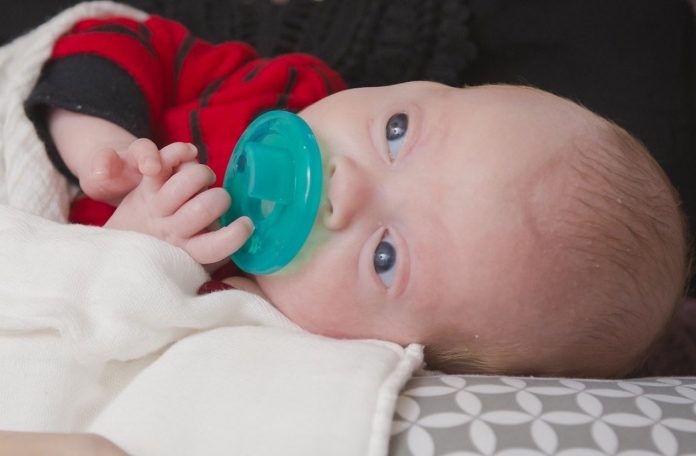Second baby born after uterus transplant from dead donor, Report.
In November, a Pennsylvania woman became the second woman in the U.S. to give birth after receiving a uterus transplant from a deceased donor, doctors at Penn Medicine in Philadelphia announced Thursday.
About a dozen women have given birth after womb transplants in the U.S., but most have received a uterus from living donors, usually friends or family. The first successful birth in the U.S. after a uterus transplant from a deceased donor occurred at the Cleveland Clinic in Ohio last year, and the first in the world took place in Brazil in 2018.
“My husband and I have always wanted to grow our family, but we knew the limited options meant it might never happen,” said the Pennsylvania mother, Jennifer Gobrecht, 33, in a news release announcing the birth of Benjamin Thomas.
“Now here we are, in spite of everything, holding our beautiful baby boy,” she said.
Gobrecht’s uterine transplant occurred in 2018, a complicated, 10-hour procedure. One of the couple’s previously frozen embryos was implanted several months later.
Gobrecht was born with Mayer-Rokitansky-Küster-Hauser syndrome, a genetic abnormality that affects a woman’s reproductive system. Gobrecht had functioning ovaries but an underdeveloped uterus, making it impossible for her to carry a baby.
Most women find out they have the syndrome as teenagers, when they should start menstruating but never do. Gobrecht learned that she would never be able to carry her own children at 17, a day she calls one of the hardest of her life.
“That was a very difficult thing to hear as a teenage girl who had dreams of being a loving mother. Like many young girls, I dreamed of how it would feel to grow baby in my womb to feel them kick inside me. And those dreams disappeared,” Gobrecht said during a news conference Thursday.
The syndrome is one of several conditions, collectively called uterine factor infertility, that cause female infertility. Doctors said about 5 percent of women in their childbearing years globally are affected by uterine factor infertility.
For these women, “uterus transplantation is potentially a new path to parenthood — outside of adoption and use of a gestational carrier,” or surrogate, Dr. Kathleen O’Neill, an assistant professor of obstetrics and gynecology in the Perelman School of Medicine at the University of Pennsylvania, said in a news release. “And it’s the only option which allows these women to carry and deliver their babies.”
The birth is the first in Penn Medicine’s uterus transplant clinical trial, which is actively enrolling patients and covered the cost of the transplant, estimated at half a million dollars.
“When I signed up for this trial, I hoped it would help my husband and me start a family, but I also strongly believe in helping others,” Gobrecht said. “My hope is that through this research, others with similar struggles will have the same opportunity.”
Doctors said one of the goals of the trial is to learn more about organ transplantation’s impact on pregnancy, including how cells from different people interact and affect outcomes. The team is also studying samples collected from Gobrecht’s transplantation that may, in turn, benefit other women.
“It’s going to help us understand some of the fundamentals about how pregnancy works, as well as to help us better understand some very important and common pregnancy complications, such as preeclampsia,” Dr. Paige Porrett, an assistant professor of transplant surgery at Penn Medicine, said during the news conference.
“Like pregnancy itself, uterus transplant is not without risk, but our trial demonstrates that it is safe. It is effective, and very importantly, it is reproducible in terms of a successful outcome,” Porrett said.
The process is neither easy nor guaranteed; many stars aligned for Gobrecht’s success.
“In the last 24 months, I was selected to be in this trial, matched with a donor, received a uterus transplant, had an embryo transfer, got pregnant and gave birth to a healthy and beautiful son,” Gobrecht said.
The unidentified deceased donor’s mother said in a statement that she is “extremely proud to support transplantation.”
“My daughter was the best mother I ever knew,” said the mother of the donor. “Nothing was more important to her than her children. What a beautiful and fitting legacy for her to help give the gift of motherhood to another woman.”
“Benjamin is truly a miracle,” Gobrecht said. “We feel beyond lucky to have him.”













